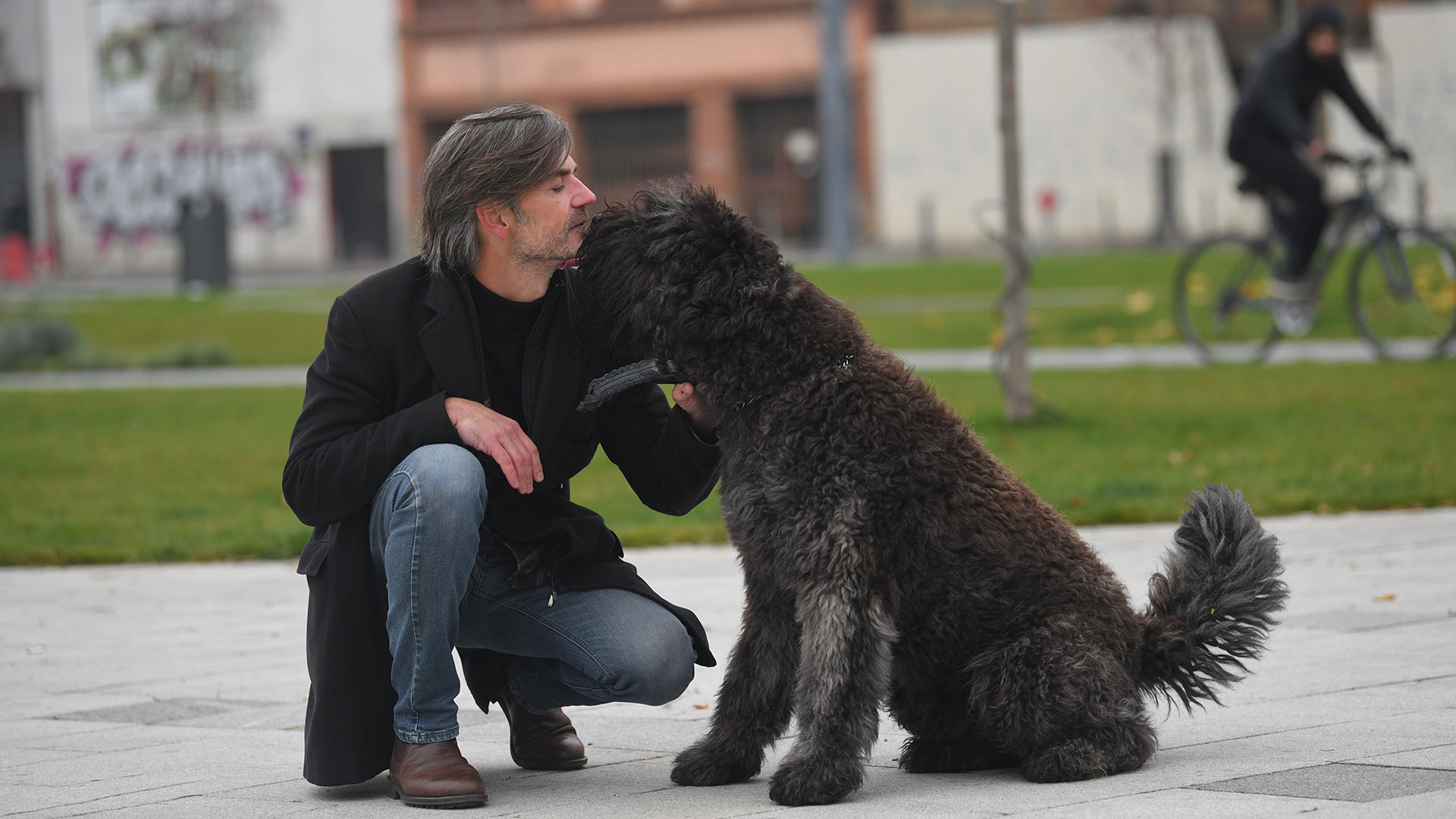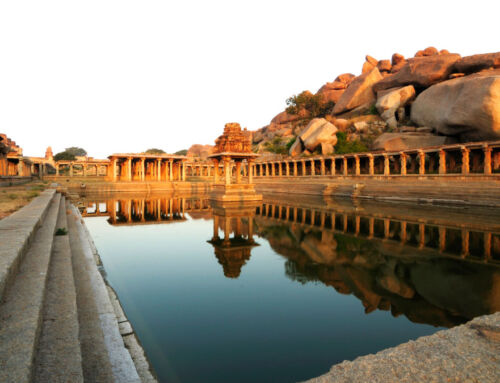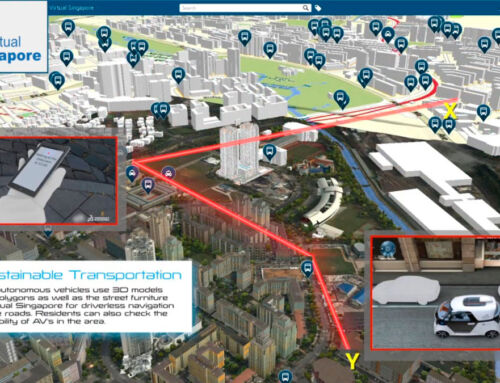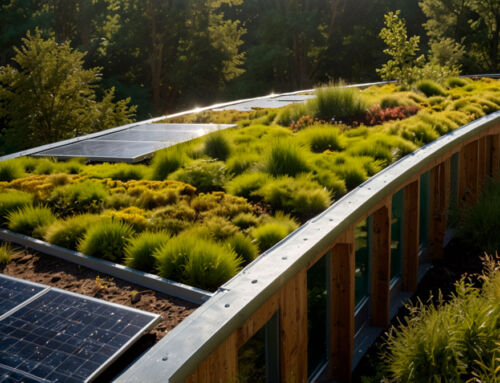We enjoyed chatting with a professional from the camping sector in Serbia. He has spent a great deal of his lifetime defending and promoting this type of tourism in a country that went through a relatively recent war and is still largely unknown to most tourists. Trained in economics and tourism, among other disciplines, as you will see, he worked for the Belgrade Tourist Organization and founded the Camping Association of Serbia, which he presides. We encourage you to discover the ins and outs of one of the most unknown aspects of the country.
Amusement Logic: You have an extensive background, starting with Economics, going through Tourism and reaching Conflict Resolution, Mediation and Geopolitics. Could you explain why you followed this interesting path in your studies?
Vladimir Djumic: It is not easy to explain in a few sentences. When I was a teenager, we lived in Šibenik, Croatia, a beautiful small town on the sea coast. Life in Šibenik was really comfortable. I always leaned towards tourism. I was attracted to that branch even when I was in elementary school. I was a rower, I competed and I loved that we traveled all the time. I found it exciting and fun to organize trips. However, my parents thought that the tourism school was too “light” for my capacities, so they persuaded me to enrol in an economics school that was much stronger.
Halfway through high school education, everything happened. Childhood was interrupted, and we were left with nothing, we left Šibenik, I left my friends. Everything was so complicated and none of us who were 16 years old had any idea what was really going on. So much hate, all at once, from all sides. The horror. I continued my education in Belgrade, at the III School of Economics. The 1990s were just beginning, and it was clear that they would not bring much good. However, my great sensibility for conflicts, for peace, led me in the direction of the anti-war movement that represented the anti-war idea “Peace, brother, peace” – it was my way of opposing the hatred and warmongering madness that ruled the former Yugoslavia. That anti-war idea later led me to Conflict Resolution, Mediation and Geopolitics. From an early age, I found myself drawn to both helping others through socially impactful work and nurturing my entrepreneurial ambitions. So, in the end, the answer to the question “why” is very clear: because life directed me that way.
A.L.: It is not surprising that you had such a varied professional career. Let’s start at the beginning, and the beginning is the so-called Balkan Urban Movement. What is it and how did you get involved in it? Why did that end in 2016?
V.D.: The Balkan Urban Movement is an NGO. (in Serbian, Balkansko Udruženje Mladih). That was my idea of how to connect all my friends who have moved around the former YU republics and how to ignore the visa regime, how to travel, as often as possible, in Europe, with as little paper and bureaucracy as possible. Through the Balkan Urban Movement (I was president for 11 years), I created many projects that dealt with resolving conflicts in communities that were affected by wars, resolving prejudices that prevailed among the peoples of the former Socialist Federal Republic of Yugoslavia (SFRY), demystifying cults and exposing the topic of war that was imposed on us, because we as a generation were not protagonists of that war, we were its victims. That was my way of getting out of that vortex and trying to do something useful, for myself and for my friends. Through the Balkan Urban Movement, we expanded the network of like-minded people throughout SE Europe. We connected from Slovenia to Greece. We were a part of IANSA (International Action Network on Small Arms) and we were part of the global campaign “Million Faces”. The Balkan Urban Movement still implements projects today.
A.L.: One of your first jobs was as Marketing Manager in the Tourist Organization of Belgrade. How did you get to it, what was your mission and what is the aim of the organization?
V.D.: It wasn’t actually one of my first jobs. But I felt there was no need to mention what came before in public biographies. I started working in 1994, right after completing my military service, as a Cargo Agent in a serious forwarding company at the Belgrade airport. I was the youngest cargo agent in the former Yugoslavia. I was good at that job, really good. That was my first job. I left it after 4 years to open my own travel agency. However, I was hindered in further development by the bombing of Serbia when we were forced to stop and give up that work because in 1999 the tourist season didn’t even exist. That cost me a nice apartment in Belgrade. But I wanted to be fair, I paid the wages of the workers, we said goodbye, I paid all the overheads and canceled the business premises, I poured a full tank of fuel into my Beetle and that was it.
The job of Marketing Manager at Tourist Organization of Belgrade (TOB) was interesting. I was recommended by my friend. I collaborated with designers, we created great promo material for Belgrade in those days. We were excited to make something that would present our city in the right way. I was in charge of printed publications and presentations at trade fairs. I think I significantly raised the quality level of promo material at that time because at the same time I had my own design house – WebHouse, and I already had a lot of experience and knowledge. TOB’s main mission is the promotion of the city of Belgrade as a tourist destination. Today, it really is becoming that, with all the innovations that the city has received in the last few years. It was a dynamic, stressful, but also very interesting job. I left it quite quickly because I didn’t like that somehow we were always hostage to the political background and TOB’s connection with the City Assembly, which determined the budget for everything we did. I didn’t think it was worth spending energy on. I had somewhere to spend it, more wisely.
A.L.: You became President of the Camping Association of Serbia shortly after. What does this association consist of and how did you become its President?
V.D.: One of the projects of Balkan Urban Movement (2004) “Eurocamps in Serbia” was oriented to show that there is a great potential for the development of camping tourism in Serbia. That was my number one favourite subject. Through that project, I realized that it was time to establish the Camping Association of Serbia (CAS). That’s how I became the president and I still am today. The idea was to try to save the few camps that survived the nineties and to encourage the creation of new ones, which will be built on ecological principles, in beautiful places, with the concept of sustainable tourism that helps the economic prosperity of the entire small rural community in which it is located. My idea was that campsites in Serbia should be developed in villages, in attractive localities, in living rural households. I still advocate the same idea today. Camping is not an industry in Serbia and I hope it will never become one. Camping in Serbia is a perfect escape for those seeking respite from the chaos of city life. It offers the opportunity to find peace, wholesome food, fresh air, and quiet spaces (light and sound-free zones). I am dedicated to protecting and promoting these pristine areas, and developing sustainable tourism practices that safeguard the natural resources for future generations. Despite the challenges posed by a materialistic world, where profit often trumps preservation, I persevere and find happiness in my efforts.
A.L.: Could you give us an overview of campsites in Serbia??
V.D.: Serbia is a very specific camping destination, precisely because of the terrain configuration. And of course, because of the people, who will always welcome you with open arms and a pure heart. Essentially, our campsites cannot be compared with European ones. In our camps, the most important thing is the atmosphere of camping and being outdoors, people who welcome and see you off, an environment where you feel like a person, not a number. They are categorized as campsites, camping rest areas and camping parkings (camping-stop). Capacities are different, from small camps for 10-15 camping places, up to 80 camping places with larger tourist destinations. The campsites are mostly seasonal (April 1st – November 1st), and some of them are exclusively of a transit nature, so the Covid-19 pandemic also caused serious damage because there was no transit.
In our campsites, the host still welcomes all his guests, serves them coffee and homemade brandy, and the guests usually stay longer than they planned. Always. Serbian camps may not have the latest technological amenities, but what they offer is authentic and heartfelt, providing guests with new insights and unforgettable experiences. While there is room for improvement (that is absolutely true), that’s what we’re working on, so that there are more of them, so that they are all good, each in their own way – efforts are being made to increase the number and quality of campsites in the country.
A.L.: What about the public, what is the proportion between nationals and tourists? And what can you tell us about their socioeconomic level?
V.D.: The situation changes from year to year. Earlier, there were many more foreigners, and today there are more and more local campers, who make up 60%. Considering the transit character of the country (here are the European corridors 7 and 10), foreign campers mostly passed through Serbia on their way to sea destinations (Greece, Croatia, Albania). However, given that Serbia offers numerous beauties and protected natural zones, given that the hospitality is at the highest level you can imagine, given that the food is still excellent, campers are increasingly choosing to go to Serbia and spend days visiting and exploring it. A fantastic cultural and historical background intertwined with beautiful nature can really be an excellent tourist product, and it is, but it needs to be better promoted. Serbia is becoming a popular camping destination, attracting a diverse range of visitors, from budget-conscious campers with tents and bicycles to those with luxury recreational vehicles. The country is especially appealing to environmentally conscious individuals who appreciate nature and outdoor living. By attracting more of these eco-conscious guests, both domestic and foreign, Serbia can further solidify its reputation as a paradise for nature lovers.
A.L.: What role do campsites in your country give to leisure and entertainment facilities?
V.D.: Unfortunately, camping is not sufficiently developed in Serbia and does not represent a large share of domestic tourism, although neighbouring Croatia is a champion in camping tourism, but it is adorned with a large Adriatic coast and a thousand islands. Serbia has something else. Rural tourism, mountains, untouched green oases, lakes, rivers, villages, yes – we have it. Good food – yes, we have that. Good people, great hosts – we certainly have that. The total number of beds in the camping industry is negligible compared to the hotel industry. Camping in Serbia has only about 15,000 beds available, but the capacities are expanding every year. Glamping is increasingly in focus. Campsites in Serbia exist in attractive locations, mostly by lakes or rivers, on transit. Unfortunately, the only eco campsite within a National Park is located on Fruška Gora and is part of a project that we developed together with Dutch NGOs. Other National Parks do not have campsites. However, there is significant potential for the development of new camps in desirable locations, as the market demand for camping is on the rise, particularly in the wake of the Covid-19 pandemic.
A.L.: How do they usually focus their investment policies? Or, in other words, how do they manage the innovation and renovation of attractions and services?
V.D.: Unfortunately, since the onset of the economic crisis in 2008, camping has not started a strong upward trajectory, simply because people do not dare to enter into investments that are uncertain or tend to have a slow return on investment. Camps are mostly a small family business, which means that campers from Europe are delighted because they have a real and authentic camping experience in our camps, they have direct contact with nature, and they are far from sound and light pollution. In other words, the camps in Serbia are a true paradise for all lovers of camping and spending time in nature. Innovations are lacking, but resources are slowly being restored and put to use for the needs of tourism. It is important to say that Serbia is still recovering from the bombing in 1999 and only this year was the last of the 107 devastated and destroyed bridges rebuilt. There is a lack of infrastructure, but this opens up space for new investments, especially in the segment of the development of new tourist products that connect hiking, cycling and camping. We definitely need responsible business and quality investments. And the key point is the education of new generations, in which it is necessary to invest, always.
A.L.: What marketing strategies do they follow?
V.D.: As far as marketing strategies are concerned, mostly municipalities (local communities) take steps towards creating strategies for the development of tourism that include marketing strategies that now by definition include outdoor activities and camping tourism. National sustainable development strategies and European strategies for the development and promotion of cycling, which is directly related to camping tourism, are certainly being followed. This exciting time is yet to come for Serbia. It was difficult for Serbia to hear some good news without it being connected to conflicts, corruption affairs, etc. The negative media campaign did not favour the development of the country in any way. Even today, we are forced to fight with it, because e.g. Dutch campers receive information that it is unsafe to pass through Serbia because the migrant corridor passes through here and that season we simply don’t have Dutch campers (only few who don’t listen to mainstream media) and so on. So it is important to emphasize that it is necessary to invest a lot of energy in changing the image that EU citizens have of Serbia.
A.L.: How did the evolution of the sector in Serbia take place in the last decades?
V.D.: In the last decade, just like I said before, the evolution of the camping sector has been slow, primarily because the decision-makers do not know the camping product and are not users of this type of service. The Camping Association of Serbia spent significant resources in order to acquaint public opinion, as well as decision-makers, with the camping industry and the opportunities that Serbia’s natural resources open for the development of this tourism industry. The beginning of the Covid-19 pandemic marked a real boom for camping and a large number of people in Serbia for the first time decided to spend their vacation in a camp, staying in a tent, a caravan or some other type of accommodation (bungalows, cabins, mobile homes). It was an excellent indicator of how far it is really possible to move forward and what is needed in order for this sector to develop better and faster. My personal efforts were directed towards the arrangement of this sector in order to avoid the devastation of natural resources, and enable the development of a product that is authentic and by its nature exclusive and close to people who are increasingly looking for an escape from the urban environment and a space where it is possible to enjoy nature. I tried my best to bring camping tourism closer to rural tourism, which has been developed in Serbia, and which offers many opportunities on multiple levels. The evolution of camping tourism could have been more serious, but numerous global circumstances prevented development. Decision-makers must be educated on the potential for developing camping tourism. With proper infrastructure and straightforward legislation, this sector can attract serious and confident entrepreneurs in the future.
A.L.: Finally, how do you see the future of the sector in Serbia?
V.D.: As the leader of the Serbian Camping Association since 2005, I believe the future of this sector is promising, driven by the global trend of outdoor recreation. Glamping, in particular, offers great potential for Serbia. It allows for a responsible and sustainable approach to nature, providing a higher level of comfort for those who seek an immersive experience in the great outdoors.
The growth of camping tourism in Serbia will depend on the awareness of its potential as a form of accommodation for both domestic and foreign travellers. I am optimistic about the future and believe that the industry is poised for growth. We have already made progress by educating the public and raising awareness of camping opportunities. Now is the time to focus on building new, environmentally responsible camps, modelled after the best in EU countries, that are integrated with nature, built in harmony with nature and use sustainable solutions, based on solutions from nature.






